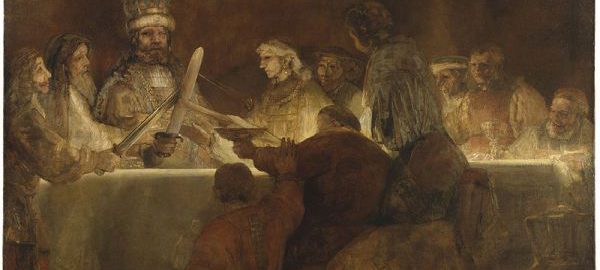In August 69 CE in the territory of Germania Inferior, there was an outbreak of the Batava uprising against the Roman authorities in this area. The rebellion was led by Julius Civilis from Batavia, commander of one of the auxiliary military cohorts. Taking advantage of the ongoing battles between Vespasian and Vitellius near Cremona, Batava troops marched towards Bonn and then surrounded the Roman troops at the camp at Castra Vetera (near today’s Xanten). Roman troops sent to aid under the command of Marcus Flaccus took up the victorious campaign along the way, defeating the Batavian-allied Khattas who threatened the Roman bases on the Rhine. During Saturnalia (December 17-23), however, Flakkus was murdered by the supporters of Vitellius and was soon replaced by Quintus Cerialis.
Meanwhile, the insurgent forces were joined by other tribes that used the prevailing fighting to plunder the surrounding areas. The Germans also agreed with the Romans on their departure from the camp in Castra Vetera. However, they did not keep their word, murdering most of the legionaries retreating from the camp.
In 70 CE despite joining the uprising of the Bructer and Tenkter tribes, the Teutons suffered defeats in the battles of Augusta Treverorum (Trier) and Castra Vetera (Xanten) in July 70 CE During their retreat across the Rhine, they suffered further defeats at Arenacium, Batavodurum, Grinnes and Vada. These failures forced the Batavas to accept surrender. Over time, most of the Germanic tribe’s romanization.







